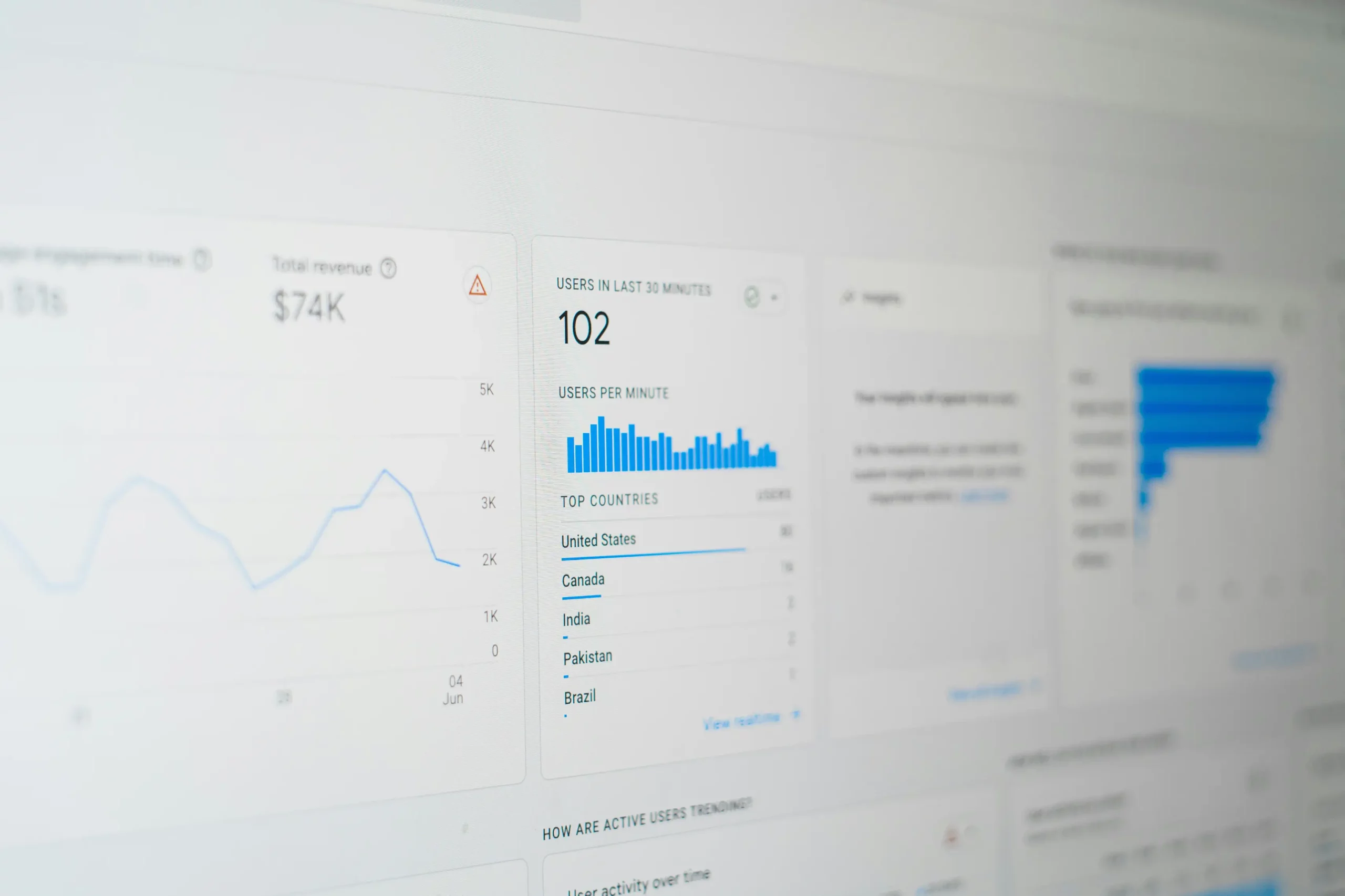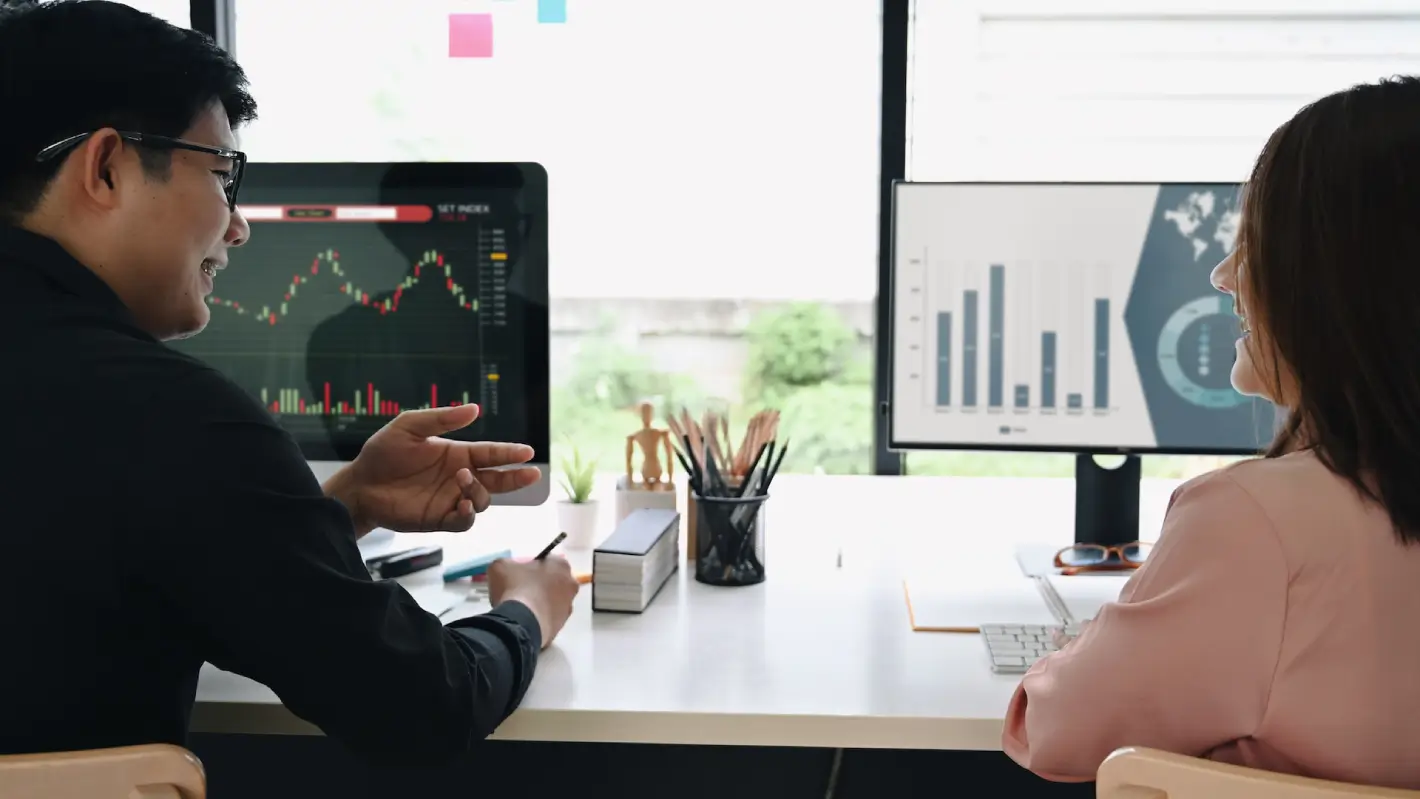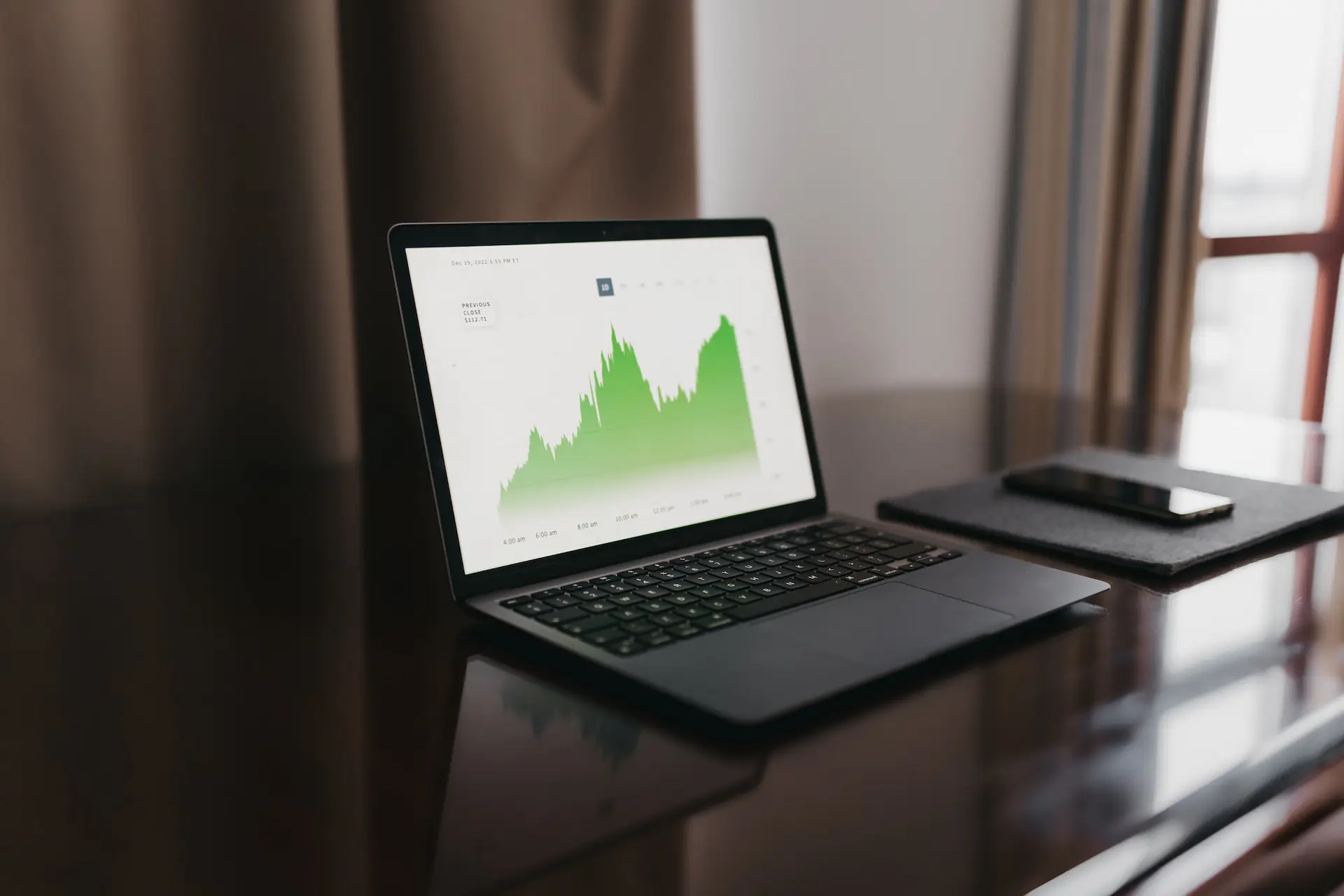If you are a website owner or a digital marketer, you know how important Google ranking is for your online success. But what if you notice that your ranking is dropping? What are the possible reasons, and how can you fix them?
What is Google’s ranking, and why does it matter?
Google ranking is the position of your website in the search engine results pages (SERPs) for a given query. The higher your ranking, the more visibility, traffic, and conversions you can get from organic search.
Google ranking matters because it reflects how relevant and authoritative your website is for the users’ search intent. Google uses over 200 factors to determine the ranking of a website, such as content quality, site speed, mobile-friendliness, backlinks, user behavior, and more.
However, Google’s ranking is not static. It can change over time due to various factors, such as algorithm updates, competitors’ actions, technical issues, or changes in user behavior. Sometimes, these changes can result in a significant drop in your ranking, which can negatively affect your online performance.
Google ranking suddenly dropped
A sudden drop in Google ranking can be frustrating, but it’s important not to panic. There are several possible causes, and often, the issue can be resolved. Here are some steps you can take to diagnose the problem and potentially recover your rankings:
- Verify the Drop: Double-check if the drop is real. Sometimes, ranking trackers can malfunction or temporary fluctuations can occur. Monitor your rankings over a few days to confirm a sustained drop.
- Check for Google Algorithm Updates: Google frequently updates its search algorithms, which can impact rankings. Visit Google Search Central for updates and see if any recent changes might be relevant to your content or industry.
- Analyze Technical Issues: Technical problems like broken links, slow loading times, or mobile-friendliness issues can negatively impact rankings. Use tools like Google Search Console to identify and fix technical errors.
- Review Recent Site Changes: Did you recently make any changes to your website, such as content updates, design modifications, or plugin installations? These changes might have unintended consequences and require further optimization.
- Monitor Backlinks: Backlinks are crucial for website authority. Check if you’ve lost any high-quality backlinks or if your competitors have gained significant links. Consider building new backlinks from reputable sources.
- Analyze Content Quality and Relevance: Ensure your content is high-quality, informative, and relevant to user search intent. Google prioritizes fresh, well-structured content that addresses user needs effectively.
- Check for Manual Actions: Google may penalize websites that violate its webmaster guidelines. Use Google Search Console to see if any manual actions have been taken against your site, and address any flagged issues accordingly.
- Analyze Competitor Performance: Identify your top competitors and see if they’ve recently improved their content, technical aspects, or marketing strategies. Studying their success might reveal areas for improvement on your own website.
- Monitor Search Engine Results Pages: Analyze the SERPs for your target keywords. See if Google has changed the layout, featured snippets, or knowledge panels, which might affect your ranking visibility.
Remember, SEO is an ongoing process. Diagnosing the cause of a ranking drop requires patience and careful analysis. If you’re still struggling, consider seeking assistance from an experienced SEO professional who can provide a more in-depth assessment and tailored recommendations.
How do you identify a Google ranking drop?
The first step to dealing with a Google ranking drop is to identify it. You can use various tools to monitor your ranking, such as Google Search Console, Google Analytics, or third-party tools like Moz or SEMrush.
You should check your ranking regularly and look for any sudden or gradual changes in your position for your target keywords. You should also compare your ranking with your competitors and see if they have experienced similar changes.
You should also analyze the impact of the ranking drop on your traffic and conversions. If you notice a significant decline in your organic traffic or conversions, it means that the ranking drop has affected your online performance, and you need to take action.
What are the possible causes of a Google ranking drop?
There are many possible causes of a Google ranking drop, but here are some of the most common ones:
- Google algorithm updates: Google constantly updates its algorithm to provide better results for users and to combat spam and low-quality websites. Sometimes, these updates can affect your ranking positively or negatively, depending on how well your website aligns with Google’s guidelines and expectations. For example, in June 2021, Google rolled out a core update that impacted many websites across different niches and regions.
- Competitors’ actions: Your ranking is also influenced by what your competitors are doing. If they improve their website’s quality, content, user experience, or backlinks, they can outrank you and push you down in the SERPs. Conversely, if they lose their ranking due to algorithm updates or penalties, you can benefit from their loss and move up in the SERPs.
- Technical issues: Technical issues can also cause your ranking to drop if they affect your website’s performance or accessibility. For example, if your website has broken links, duplicate content, slow loading speed, crawl errors, or security issues, it can harm your ranking and user experience.
- Content issues: Content is one of the most important factors for Google ranking. If your content is outdated, irrelevant, thin, or low-quality, it can hurt your ranking and user engagement. You should always create fresh, original, comprehensive, and useful content that matches the users’ search intent and provides value to them.
- Backlink issues: Backlinks are another important factor for Google ranking. They indicate how popular and authoritative your website is in your niche. However, not all backlinks are created equal. If you have low-quality or spammy backlinks from irrelevant or untrustworthy websites, they can damage your reputation and ranking. You should always monitor your backlink profile and remove or disavow any toxic links that point to your website.
- User behavior issues: User behavior is another factor that Google considers when ranking websites. It reflects how satisfied the users are with your website and how well it meets their needs. Some of the user behavior metrics that Google looks at are click-through rate (CTR), bounce rate, dwell time, pages per session, and conversions. If these metrics are low or declining, it means that your website is not engaging or satisfying the users, and it can affect your ranking.

Other possible reasons
There are many possible reasons why your Google ranking is dropping. Here are some of the most common ones:
- You have technical issues on your website, such as broken links, slow loading speed, duplicate content, or crawl errors.
- You have been hit by a Google algorithm update, such as Panda, Penguin, or Core Web Vitals, that penalizes low-quality or spammy websites.
- You have lost backlinks from authoritative or relevant websites, either because they removed your link, changed their domain, or got penalized themselves.
- You have new competitors in your niche or industry that are outranking you with better content, user experience, or SEO strategies.
- You have changed your website design, content, or structure without considering the impact on your SEO performance.
- You have experienced a seasonal or temporary drop in traffic due to factors outside your control, such as holidays, events, or news cycles.
Symptoms and Recovery Tips
If you have noticed a sudden drop in your Google ranking, you are not alone. Many website owners experience fluctuations in their positions on the search engine results pages due to various factors. Ranking drops can have a negative impact on your traffic, conversions, and revenue, so it is important to understand the possible causes and how to recover from them.
Algorithm Update
One of the most common reasons for ranking drops is a Google algorithm update. Google constantly updates its ranking algorithm to provide the best user experience and the most relevant results. Sometimes, these updates can affect your website’s performance, especially if you are not following the best practices or if your strategies are outdated.
Recovery Tips:
- Stay informed about the latest algorithm updates and how they affect your industry and niche. You can use tools like MozCast or SEMrush Sensor to monitor the volatility of the SERPs and identify any major changes.
- Adapt your strategies according to the new algorithm requirements. For example, if Google is focusing more on user intent, content quality, or mobile-friendliness, you should optimize your website accordingly.
- Monitor your website’s performance using tools like Google Analytics, Google Search Console, or Ahrefs. Track your ranking changes, traffic fluctuations, bounce rate, conversion rate, and other metrics that indicate user satisfaction and engagement.
- If you notice a significant drop in your ranking or traffic after an algorithm update, don’t panic. It may take some time for your website to adjust to the new algorithm or for Google to re-evaluate your site. Be patient and focus on providing value to your users.
Technical Issues
Another possible reason for ranking drops is technical issues on your website. These can include broken links, slow loading speed, crawl errors, duplicate content, poor site structure, or security problems. Technical issues can affect your website’s usability, accessibility, and credibility, which can negatively impact your ranking.
Recovery Tips:
- Audit your website regularly using tools like Screaming Frog, Sitebulb, or Google PageSpeed Insights. Identify and fix any technical errors that may be affecting your website’s performance or user experience.
- Optimize your website for a better user experience. Make sure your site is fast, responsive, secure, and easy to navigate. Use clear headings, subheadings, images, videos, and other elements to enhance your content and make it more engaging.
- Implement schema markup on your website to provide structured data to Google and help it understand your content better. Schema markup can also help you generate rich snippets on the SERPs, which can improve your click-through rate and visibility.
Competitor Impact
Sometimes, ranking drops are not caused by anything you did wrong but by something your competitors did right. If your competitors are outranking you on the SERPs, it means they are providing better value to the users than you are. They may have improved their content quality, optimized their site speed, acquired more backlinks, or implemented a more effective marketing strategy.
Recovery Tips:
- Analyze your competitors’ strategies using tools like SpyFu, SimilarWeb, or BuzzSumo. Find out what keywords they are targeting, what content they are creating, what backlinks they are getting, and what channels they are using to promote their site.
- Adjust your own strategy based on your competitor analysis. Don’t copy them blindly, but learn from them and find ways to differentiate yourself. Focus on your unique selling proposition (USP) and how you can provide more value to your users than your competitors.
- Keep an eye on your competitors’ activities and monitor their performance. Don’t let them get ahead of you or catch you off guard. Stay updated on their new content, products, features, or promotions, and respond accordingly.
Content Quality
Content quality is one of the most important factors for ranking on Google. If your content is not relevant, useful, engaging, or trustworthy for your users, it will not rank well on the SERPs. Content quality can be affected by various factors such as outdated information, spelling or grammar errors, thin or duplicate content, lack of depth or originality, or mismatched user intent.
Recovery Tips:
- Revise and enhance your existing content using tools like Grammarly, Hemingway, or Yoast SEO. Fix any spelling or grammar errors, improve readability, and optimize for keywords.
- Focus on user intent when creating new content. Understand what your users are looking for and what problems they are trying to solve when they search for a certain keyword. Create content that matches their intent and provides them with the best solution.
- Target relevant keywords that have high search volume and low competition. Use tools like Google Keyword Planner, Ubersuggest, or Ahrefs Keyword Explorer to find keyword opportunities and optimize your content accordingly.
- Provide value to your users by creating content that is informative, engaging, and actionable. Use data, statistics, examples, case studies, testimonials, or other elements to support your claims and build trust. Use images, videos, infographics, or other media to make your content more appealing and interactive. Use clear calls to action (CTAs) to guide your users to the next step.
Google Penalties
The worst-case scenario for ranking drops is a Google penalty. A Google penalty is a manual or algorithmic action that Google takes against your website when it detects that you are violating its webmaster guidelines. A Google penalty can result in a partial or complete removal of your website from the SERPs, which can severely damage your traffic and reputation.
Recovery Tips:
- Identify the cause of the penalty using tools like Google Search Console or Ahrefs Site Explorer. Find out if you have received a manual action notification from Google or if you have been affected by an algorithmic penalty such as Penguin or Panda.
- Rectify the violations that triggered the penalty. For example, if you have been penalized for unnatural links, you should remove or disavow any low-quality or spammy links pointing to your site. If you have been penalized for thin or duplicate content, you should delete or rewrite any low-quality or plagiarized content on your site.
- Submit a reconsideration request to Google once you have fixed the issues. Explain what actions you have taken to rectify the violations and why you think your website deserves to be reinstated on the SERPs. Be honest and polite and provide evidence of your efforts.
- Wait for Google’s response and monitor your website’s performance. It may take several weeks for Google to process your request and restore your ranking. Be patient and keep working on improving your website’s quality and user experience.
How to prevent Google ranking drops?
While you cannot control everything that affects your Google ranking, you can take some proactive measures to prevent or minimize ranking drops. Here are some tips to help you maintain or improve your ranking:
- Regularly monitor performance metrics: You should keep track of your website’s performance using tools like Google Analytics and Google Search Console. These tools can help you measure important metrics like traffic, conversions, bounce rate, click-through rate, and impressions. They can also alert you to any issues or errors that might affect your ranking.
- Keep up with industry trends and algorithm changes: You should stay updated on the latest developments and changes in your industry and niche. You should also follow Google’s announcements and guidelines regarding algorithm updates and best practices. This way, you can adapt your SEO strategy accordingly and avoid any negative impacts on your ranking.
- Maintain a healthy backlink profile: Backlinks are links from other websites that point to your website. They are one of the most important ranking factors for Google, as they indicate the authority and trustworthiness of your website. However, not all backlinks are created equal. You should aim to get high-quality backlinks from relevant and reputable websites and avoid low-quality or spammy backlinks that might harm your ranking.
- Continuously improve content and user experience: Content is king when it comes to SEO. You should create original, engaging, and useful content that matches the search intent and needs of your audience. You should also optimize your content for keywords, headings, images, and meta tags. Additionally, you should enhance your user experience by making your website easy to navigate, fast to load, and mobile-friendly.
Google ranking drops are inevitable and unpredictable. However, by following these tips, you can prevent or reduce the chances of losing your position on the search results page. Remember that SEO is a long-term process that requires constant monitoring and improvement. If you need help with your SEO strategy or want to learn more about how to rank better on Google, contact us today!



